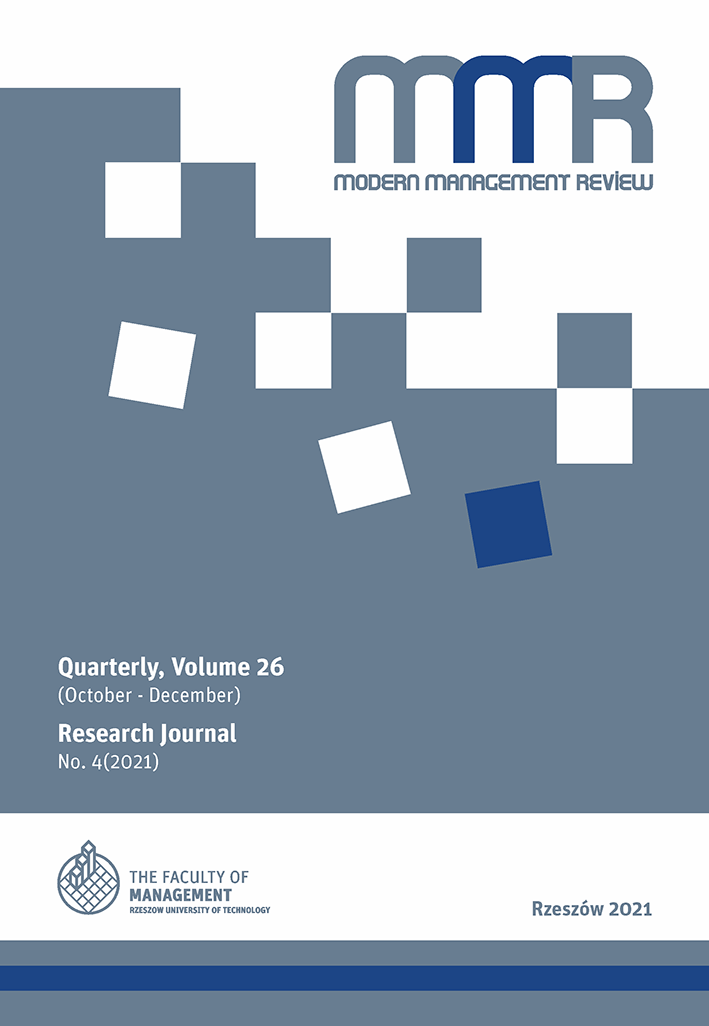Abstrakt
This paper is aimed to clarify the definition and categorization of discounts as well as pro- and anticompetitive effects of discounts. The author applied qualitative methods to the research. The modern literature review unfolds the gap of proper discounts definition, which is proposed to be covered by five-dimensions approach to discounts categorization. Based on such aspects of discount scheme as time, product, threshold, distribution level and customer, the approach provides comprehensive and uniform characteristics of discount. It allows assessing effects of competition, which are classified in two groups. Pro-competitive effects include stimulation of demand, decreasing cost due to economy of scale, solving coordination problems within a supply chain. Anti-competitive effects encompass predation scheme, raising rival’s cost, exclusive dealing, leverage and exclusionary bundling. The importance of correct assessment of the discounts by antitrust authorities is high as an overenforcement in this sphere may lead to adverse effect on total welfare.
Bibliografia
Ahlborn, C., Bailey, D. (2006). Discounts and Selective Pricing by Dominant Firms: A Trans-Atlantic Comparison. “European Competition Journal”.
Antimonopoly Committee of Ukraine vs. Sanofi and distributors (2017). Decision 628-r. Access on the internet:https://amcu.gov.ua/npas/rishennya-628-r-vid-14112017
Autorité de la concurrence (2018). Loyalty rebates. Collection Les Essentiels, La Documentation française.
Bishop, S., Walker, M. (2002). The Economics of EC Competition Law: Concepts, Applications and Measurement. London: Sweet & Maxwell.
Calzolari, G., Denicolo, V. (2009). Competition with Exclusive Contracts and Market-Share Discounts. Access on the internet:https://www.aeaweb.org/articles?id=10.1257/aer.103.6.2384
Corstjens, J., Corstjens, M. (2005). Store Wars: Battle for Mindspace and Shelfspace (Russian translation, Popurry LLC).
European Commission (2005). DG Competition discussion paper on the application of Article 82 of the Treaty to exclusionary abuses.
—— (2009). Guidance on the Commission's enforcement priorities in applying Article 82 of the EC Treaty to abusive exclusionary conduct by dominant undertakings.
—— (2008). Roundtable on Bundled and Loyalty Discounts and Rebates, submission to OECD. Access on the internet: http://ec.europa.eu/competition/international/multilateral/2008_june_rebates.pdf
Faella, G. (2008). The Antitrust Assessment of Loyalty Discounts and Rebates. “Journal of Competition Law & Economics”.
Federico, G. (2011). The Antitrust Treatment of Loyalty Discounts in Europe: Towards a More Economic Approach. Access on the internet: https://papers.ssrn.com/sol3/papers.cfm?abstract_id=2883846
Financial Conduct Authority (2016). Price Discrimination and Cross-subsidy in Financial services. Access on the internet:https://www.fca.org.uk/publication/occasional-papers/op16-22.pdf
Fletcher, A., Williams, M., Walker, M. (2016). Predation and excessive pricing. Price discrimination, discounts, tying and bundling, Unit 4, Postgraduate Diploma in Economics for Competition Law, King’s College London.
Fumagalli, C., Motta, M. (2016). On the Use of Price-Cost Tests in Loyalty Discounts and Exclusive Dealing Arrangements: Which Implications from Economic Theory? Access on the internet:https://papers.ssrn.com/sol3/papers.cfm?abstract_id=2851419
Gavil, A., Kovacic, W., Baker, J., Wright, J. (2017). Antitrust law in perspective, 3rd edn, West Academic Publishing.
Geradin, D., Elhauge, E. (2011). Global Competition Law and Economics, 2nd edn, Hart Publishing.
Geradin, D. (2008). Separating pro-competitive from anti-competitive loyalty rebates: A con-ceptual framework, Paper prepared for the Asia International Competition Conference. Access on the internet: https://papers.ssrn.com/sol3/papers.cfm?abstract_id=1259830
Greenlee, P., Reitman, D., Sibley, D. (2006), An Antitrust Analysis of Bundled Loyalty Discounts. Access on the internet: http://www.stern.nyu.edu/networks/phdcourse/greenlee_reitman_sibley_Bundling_Royalty_Discounts.pdf
Ignatiuk A. I., Ekonomika haluzevykh rynkiv: navchalnyi posibnyk / A. I. Ignatiuk. – Kyiv: Ukrainian Orthodox Church "Kyiv University", 2015.
Jeon, D., Menicucci, D. (2009). Bundling and Competition for Slots. Access on the internet: http://idei.fr/sites/default/files/medias/doc/wp/2011/wpfinal_jeon_juil11.pdf?
Kobayashi, B. H., (2005). The Economics of Loyalty Discounts and Antitrust Law in the United States, George Mason University, law and economics working paper series. Access on the internet: https://papers.ssrn.com/sol3/papers.cfm?abstract_id=794944
Majumdar, A., Shaffer, G., (2007). Market-Share Contracts with Asymmetric Information. Access on the internet: https://papers.ssrn.com/sol3/papers.cfm?abstract_id=1014008
Marvel, H., Yang, H. (2007). Group purchasing, nonlinear tariffs, and oligopoly. Access on the internet: https://www.sciencedirect.com/science/article/pii/S0167718707001233?
Mills, D.E. (2009). Inducing Downstream Selling Effort with Market Share Discounts. Access on the internet: http://economics.virginia.edu/sites/economics.virginia.edu/files/Inducing%20Downstream%20Selling%20Effort%20with%20Market%20Share%20Discounts.pdf
Motta, M. (2004). Competition Policy: Theory and Practice. Cambridge University Press: Cambridge.
Niels, G., Jenkins, H., Kavanagh, J. (2016). Economics for Competition Lawyers. 2nd ed., Oxford University Press.
Salop, S. (2017). The Raising Rivals' Cost Foreclosure Paradigm. Conditional Pricing Practices, and the Flawed Incremental Price-Cost Test. “Antitrust Law Journal”.
OECD (2016). Price Discrimination. Background note by the Secretariat. Access on the internet: https://one.oecd.org/document/DAF/COMP(2016)15/en/pdf
Office of Fair Trading (2005). Selective Price Cuts and Fidelity Rebates: A Report Prepared for the OFT by RBB Economics.
Wright, J. (2013). Simple but Wrong or Complex but More Accurate? The Case for an Exclusive Dealing-Based Approach to Evaluating Loyalty Discounts. Speech delivered at the Bates White 10th Annual Antitrust Conference, Washington, DC, on 3 June 2013.
Wszystkie teksty zamieszczone w kwartalniku "Modern Management Review", dostępne są w pełnej wersji na stronie internetowej Czasopisma. Od numeru 19 (3/2012) zostały także wprowadzone identyfikatory cyfrowe (DOI: 10.7862/rz.2018.mmr.1)
Artykuły w czasopiśmie Modern Management Review są udostępniane na warunkach licencji Creative Commons (CC-BY 4.0), w tym na następujących polach eksploatacji obejmujących:
- prawo do wydawania Utworu drukiem w formie książkowej i cyfrowej oraz jego rozpowszechniania w formie książkowej i cyfrowej, w tym poprzez wyświetlanie, odtworzenie, nadawanie, publiczne udostępnienie przez Wydawcę oraz podmioty trzecie,
- prawo do utrwalenia i zwielokrotnienia całości lub części Utworu na papierze i w formie zapisu cyfrowego oraz w każdy inny możliwy sposób przez Wydawcę,
- prawo do wprowadzania Utworu do pamięci komputera oraz zapisywania Utworu w systemach informatycznych Wydawcy i innych podmiotów dystrybuujących treści cyfrowe,
- prawo do archiwizowania Utworu oraz tworzenia kopii Utworu na nośnikach elektronicznych przez Wydawcę, bez ograniczeń ilościowych,
- prawo do digitalizacji Utworu oraz dokonywania konwersji/przekształceń Utworu w wersji elektronicznej na inne formaty cyfrowe przez Wydawcę oraz podmioty trzecie,
- prawo do rozpowszechniania Utworu, w tym za pośrednictwem sieci Internet lub innych sieci teleinformatycznych przez Wydawcę oraz inne podmioty trzecie, w sposób umożliwiający oglądanie, czytanie, kopiowanie treści Utworu w postaci elektronicznej, tj. wszystkich elementów do niego należących, przy czym przez kopiowanie rozumie się zapisanie przez osobę zainteresowaną udostępnionego jej Utworu na wybranym przez nią nośniku,
- prawo do przechowywania Utworu w bazie danych Wydawcy i innych podmiotów dystrybuujących Utwór w jakiejkolwiek postaci, jak również jego przetwarzania w bazie danych Wydawcy oraz podmiotów trzecich,
- prawo do tłumaczenia i wydania Utworu w jednym z języków nowożytnych w jakiejkolwiek postaci przez Wydawcę oraz podmioty trzecie.


